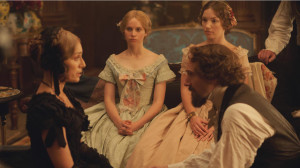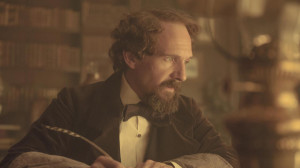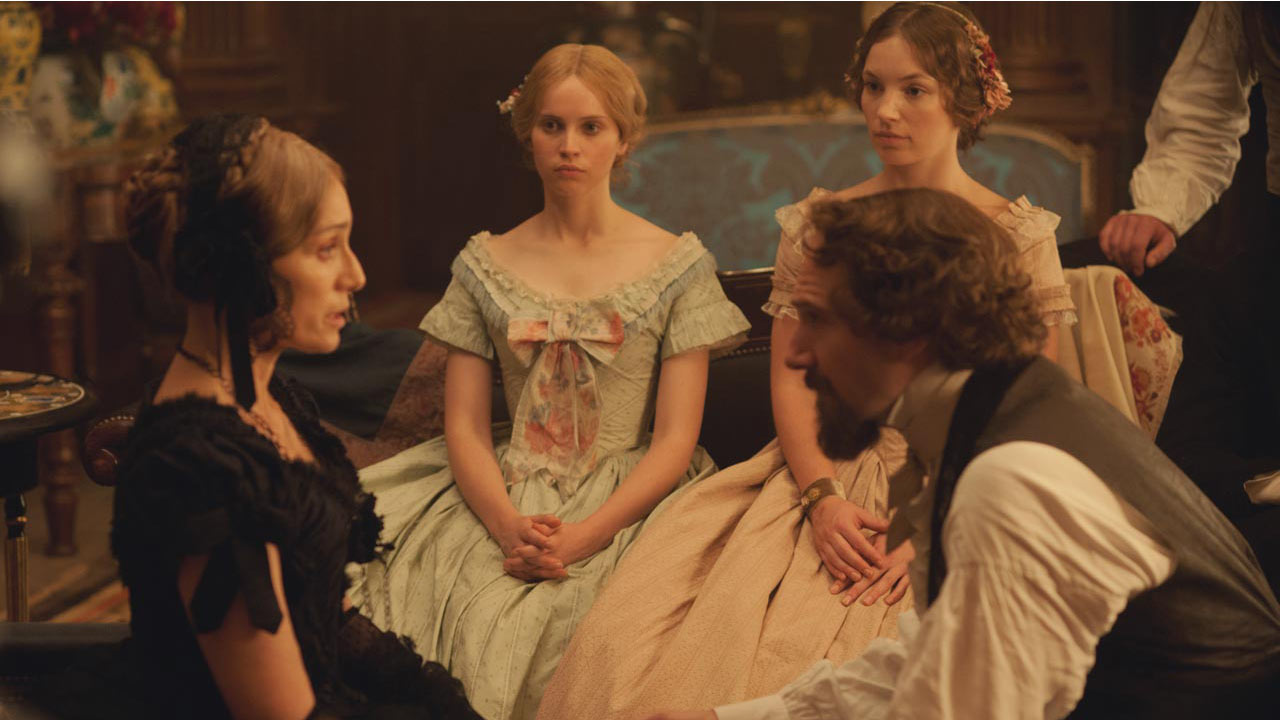We all have secrets. For Charles Dickens, famed writer and literary genius, that secret was his love affair with 18-year-old actress Nelly Ternan. This secret is the premise for the upcoming film, The Invisible Woman, produced and directed by Ralph Fiennes, who also stars as Dickens.

The film introduces us to Dickens at the height of his success and fame, yet burdened with a marital life that lacks the excitement and luster of his prolific career.
At a rehearsal for one of his plays, Dickens meets Nelly, (played by Felicity Jones), and is immediately infatuated with the young beauty. Over the course of their subsequent meetings, she falls for him but they both have fears that block their path to realizing their love affair. Dickens fears the consequences to his family, his image and his livelihood, while Nelly, knowing that Dickens will never marry her, resents being led down a path that would make her a mistress and never a wife.
The Invisible Woman recreates the Victorian era with splendor and authenticity. Fans of Victorian dramas will at the very least enjoy the costumes and locales.
Other enjoyable aspects of the film are its beautiful dialogue, inspired performances by the two main actors, and fascinating insights into the entertainment industry of the 19th century, a time where writers were hounded by fans for autographs while famous actors made just enough money to keep out of the poorhouse.
This movie is not for everyone. The pacing is slow. Very slow. We’re not in Victorian times anymore and today’s attention spans are short and audiences do not forgive too many minutes that drag on with nothing but close-ups and atmosphere.
In addition, the main story is not very compelling. It is a classic tale of a successful man who needs some sensual excitement in his middle age. This man just happens to be Charles Dickens.

That being said, many of the brief insights into the life of Dickens and the world around him were more interesting than the story the film focused on. In an early scene, a group of party guests huddle around Dickens while he performs hypnosis on one of his invitees. The fact that Dickens dabbled in hypnosis might be surprising in itself, but it helps define what kind of person he was. Dickens cared about connecting with his audiences, and on many levels, manipulating them. If art is manipulation then Dickens was a master manipulator, and it is this character trait that adds perhaps the only truly unique layer to his relationship with Nelly.
Through his subtle form of verbal seduction we see how Dickens reduces the strong-willed Nelly, who originally would never have agreed to be the “other woman,” into the role of the submissive concubine, whose independence is completely quenched. Given Dickens’ considerable talent, and the lack of opportunities available to women at the time, Nelly really had no choice in the matter. As Nelly poignantly puts it, “You men live your lives while we wait” — Dickens is always in control, a trait which adds a dark and twisted undercurrent to Ralph Fiennes’ overtly kind-hearted and charming portrayal.
This movie is recommended to die-hard Dickens fans and to those who appreciate slow and deliberately paced period dramas. To everyone else, the season is ripe with worthy alternatives.




